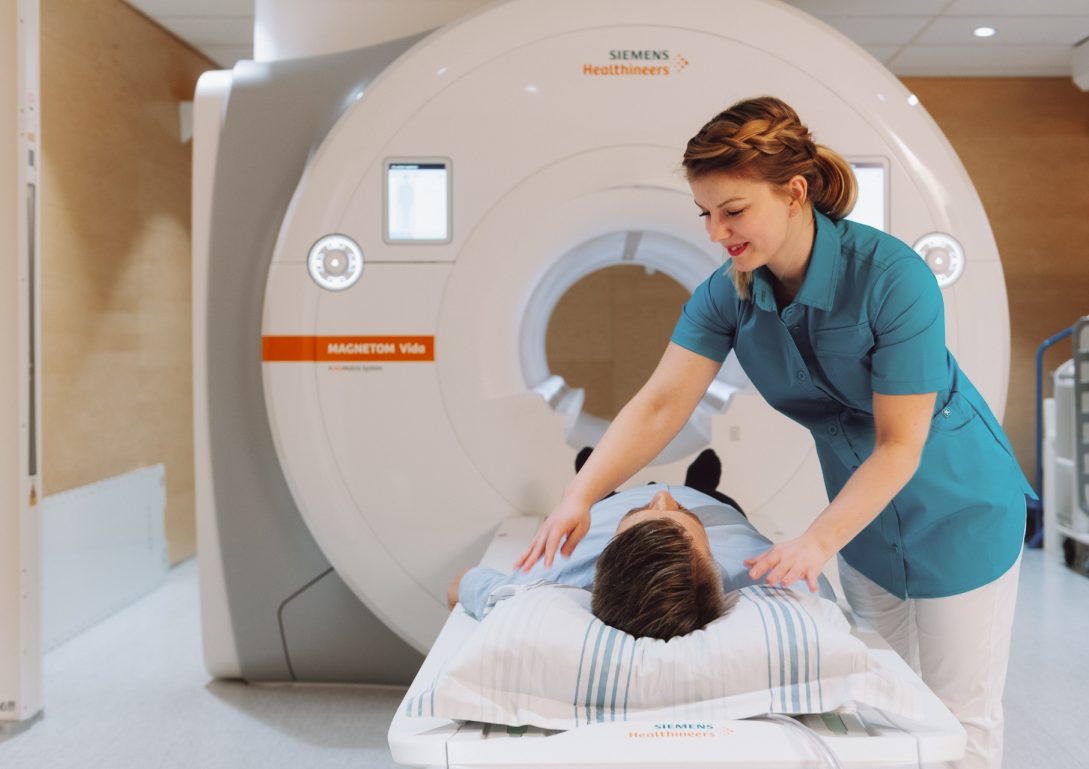The temporary technical problem in the data network connections
A temporary technical problem occurred in the data network connections of Docrates Cancer Center. We apologise for any delays caused...
Read moreMon–Fri 8–16

The detection of colorectal cancers, i.e. cancer of the small colorectal, colon cancer and rectal cancer, is often delayed when patients come to see a doctor relatively late due to the gradually developed symptoms. However, the prognosis of colorectal cancers is better the earlier the disease is detected and appropriate treatment can be started.
The primary examinations of colorectal cancers include palpation of the rectum, endoscopic examinations and tissue samples. In digital palpation of the rectum, the doctor examines the end part of the rectum with his or her finger through the anus. When colon cancer is suspected, colonoscopy, or endoscopy of the colon, is the most important examination method. In the examination, a flexible endoscope, or a colonoscope, is used to examine the colon throughout from the rectum to the beginning of the colon. If any suspect sections are found, a tissue sample or a biopsy is taken from them. Small polyps can be completely removed at the same time. Staging of colorectal cancers includes blood tests, such as tumor biomarker determinations, and imaging, such as magnetic resonance imaging (MRI) of the pelvis and computed tomography (CT) of the body.
From the very first appointment, the patient has a designated personal doctor. The counselling nurse at Docrates together with the doctor is responsible for ensuring that the treatment process runs as quickly and smoothly as possible. The nurse helps the patient with practical matters and provides information and psychological support. The patient may wish to have a consultation with a physiotherapist specialising in cancer patients. During the consultation, his or her situation will be assessed and he or she will receive preoperative instructions. Especially if the cancer has caused weight loss, consultation with a dietitian may also be useful already before surgery.
A temporary technical problem occurred in the data network connections of Docrates Cancer Center. We apologise for any delays caused...
Read more
Hannu Nurmio was aware that prostate cancer is the most common cancer in older men. However, after the diagnosis was confirmed,...

Early detection of colorectal cancer is crucial for successful treatment. If diagnosed early, up to 90% of cancers can be...

Docrates Cancer Center is the first service provider in the Nordic region to launch a new experimental alpha radiation treatment...
Contact us!
Mon-Thu 8:00-18:00, Fri 8:00-16:00
